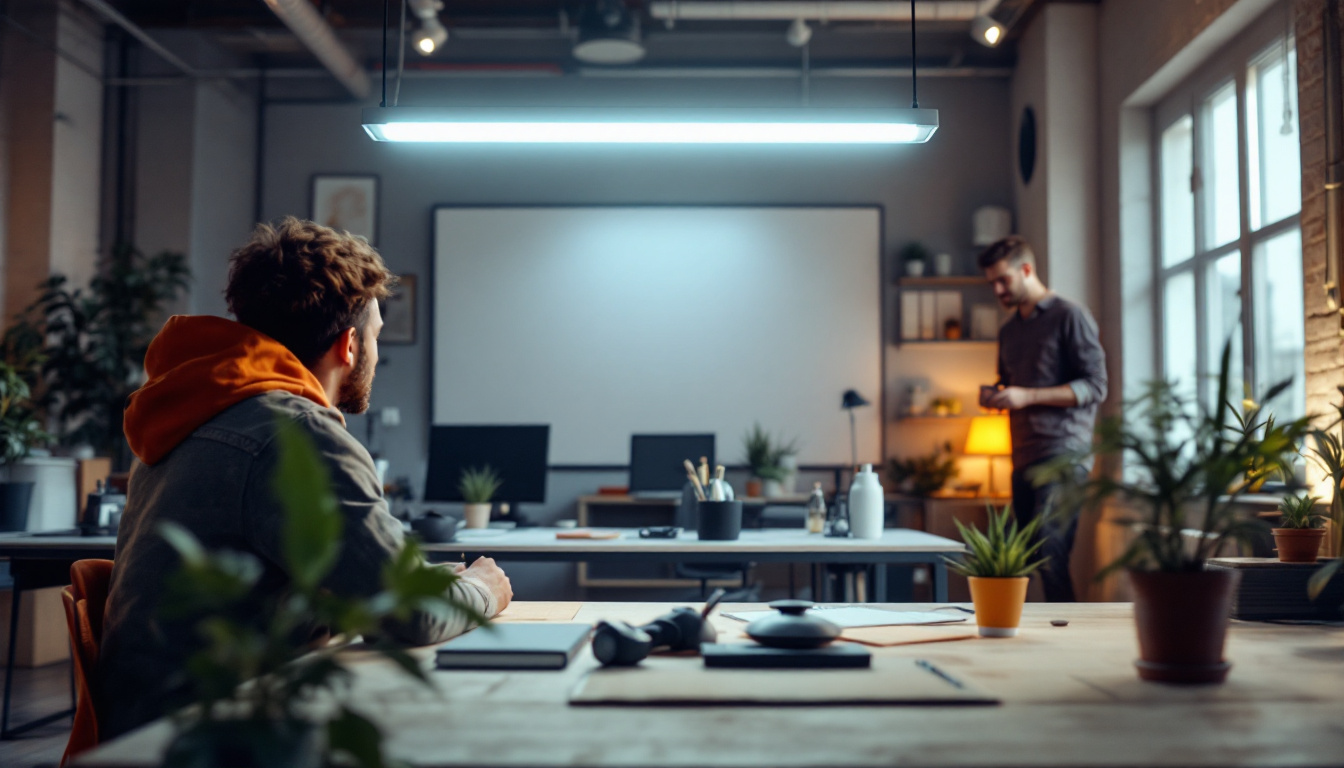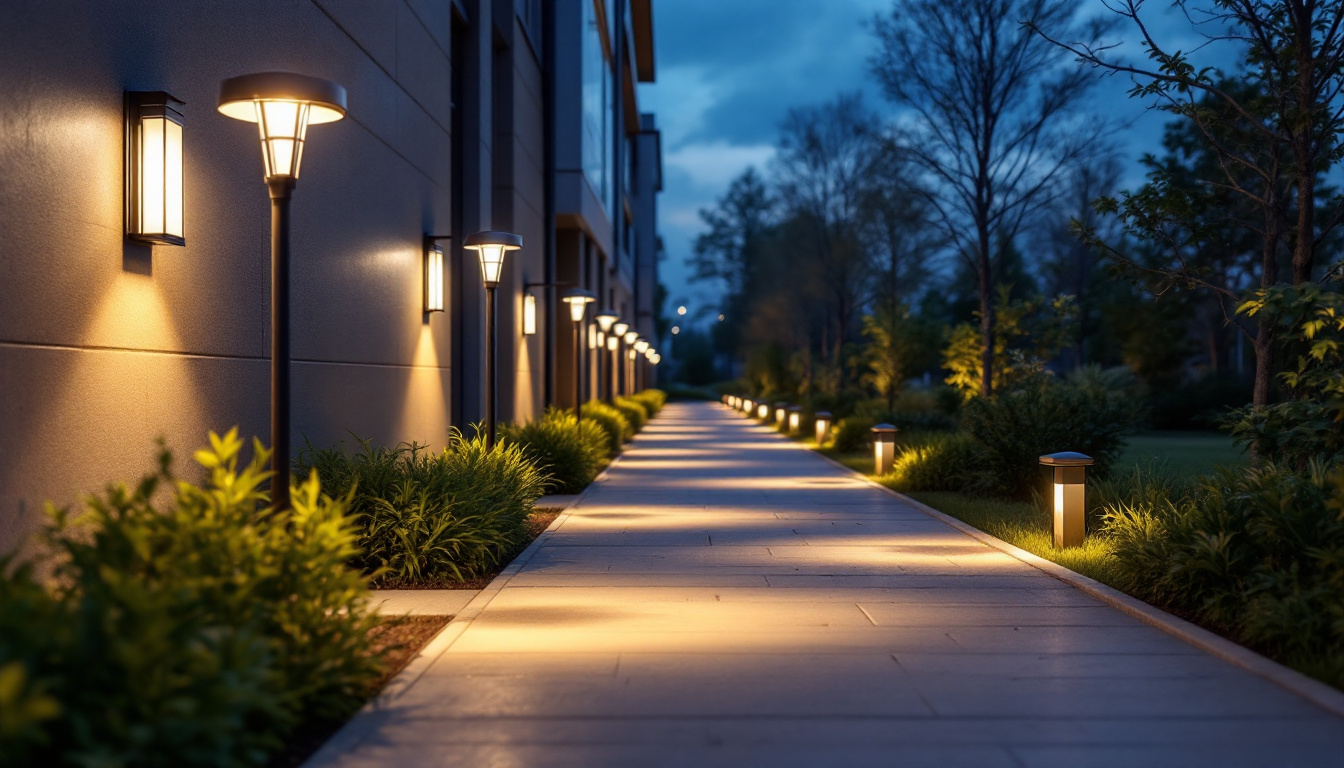
In the evolving landscape of lighting technology, UV-C lights have emerged as a pivotal solution for various applications, particularly in disinfection and sanitation. For lighting contractors, understanding the intricacies of UV-C technology is essential not only for expanding service offerings but also for ensuring client safety and satisfaction. This article delves into the proven methods of utilizing UV-C lights, their benefits, and practical considerations for effective implementation.
UV-C light, a segment of the ultraviolet spectrum, is known for its germicidal properties. Operating at wavelengths between 200 to 280 nanometers, UV-C light effectively disrupts the DNA and RNA of microorganisms, rendering them incapable of reproduction and infection. This characteristic makes UV-C lights particularly valuable in settings that require stringent hygiene standards. The effectiveness of UV-C technology has gained significant attention, especially in the wake of global health crises, as it offers a chemical-free method of disinfection that minimizes the risk of chemical exposure to both humans and the environment.
The mechanism behind UV-C disinfection is straightforward yet powerful. When microorganisms are exposed to UV-C light, their cellular structures absorb the energy, leading to the formation of pyrimidine dimers in their DNA. This process inhibits their ability to replicate and ultimately leads to cell death. Understanding this mechanism is crucial for contractors who wish to explain the benefits of UV-C technology to their clients. Additionally, the effectiveness of UV-C light can vary based on several factors, including the intensity of the light, exposure time, and the type of microorganism being targeted. This variability underscores the importance of proper application and usage protocols to achieve optimal disinfection results.
UV-C lights are versatile and can be utilized in various environments. Common applications include:
Furthermore, the integration of UV-C technology into HVAC systems is gaining traction, as it not only helps in disinfecting the air circulating through the system but also reduces the buildup of mold and bacteria within the ducts. This proactive approach not only enhances indoor air quality but also extends the lifespan of HVAC systems by minimizing the need for frequent maintenance. As awareness of UV-C technology continues to grow, its potential applications are expanding, paving the way for innovative solutions in public health and safety.
Integrating UV-C lighting into service offerings presents numerous advantages for lighting contractors. Understanding these benefits can help in marketing and positioning services effectively.
One of the most significant benefits of UV-C lights is their ability to enhance safety and hygiene. As public awareness of health and sanitation grows, clients are increasingly seeking solutions that provide reassurance against pathogens. By offering UV-C lighting solutions, contractors can help clients achieve higher cleanliness standards, particularly in high-traffic areas. The effectiveness of UV-C light in inactivating viruses and bacteria has been supported by numerous studies, making it a scientifically-backed choice for environments such as hospitals, schools, and public transportation systems. This not only boosts client confidence but also positions contractors as forward-thinking professionals who prioritize health and safety.
UV-C lights are typically energy-efficient compared to traditional disinfection methods. They require less energy to operate and can cover larger areas more effectively. This efficiency not only reduces operational costs for clients but also aligns with the growing trend towards sustainability in lighting solutions. Furthermore, the longevity of UV-C bulbs means that they need to be replaced less frequently than conventional lighting options, further minimizing waste and maintenance costs. Contractors can leverage this aspect in their marketing strategies, emphasizing the dual benefits of cost savings and environmental responsibility, which are increasingly important to modern consumers.
UV-C lights can be integrated into existing lighting systems or installed as standalone units. This versatility allows contractors to tailor solutions to meet specific client needs, whether it be retrofitting current systems or designing new installations. The adaptability of UV-C technology can be a selling point for contractors looking to expand their service offerings. Additionally, the compact design of many UV-C fixtures means they can be installed in tight spaces or areas where traditional disinfection methods may be impractical. This flexibility opens up new opportunities for contractors to serve a wider range of clients, from small businesses to large industrial facilities, ensuring that they can meet diverse requirements while enhancing their portfolio of services.
While the benefits of UV-C lights are clear, the installation process requires careful consideration to ensure effectiveness and safety. Contractors must be well-versed in the best practices for UV-C light installation.
Safety is paramount when working with UV-C lights. These lights can be harmful to skin and eyes, necessitating strict adherence to safety protocols. Contractors should ensure that UV-C fixtures are installed in areas where human exposure is limited. Additionally, signage should be placed to warn individuals of the presence of UV-C lighting systems.
The placement of UV-C lights is crucial for achieving maximum disinfection efficacy. Contractors should conduct thorough assessments of the spaces where UV-C lights will be installed, considering factors such as:
Regular maintenance is vital to ensure that UV-C lights operate at peak efficiency. Contractors should establish maintenance schedules that include cleaning the fixtures and replacing bulbs as needed. Educating clients on the importance of maintenance can help extend the life of the UV-C systems and ensure continued effectiveness.
As with any technology, UV-C lights are subject to regulations and standards that contractors must be aware of. Compliance with these regulations is essential to ensure safety and efficacy.
Different regions may have specific regulations governing the use of UV-C technology. Contractors should familiarize themselves with local guidelines, including any restrictions on the use of UV-C lights in certain environments. Staying informed about regulatory changes can help contractors avoid potential legal issues and better serve their clients.
Contractors may also need to adhere to industry standards for UV-C devices, such as those established by organizations like the American National Standards Institute (ANSI) or the International Electrotechnical Commission (IEC). Ensuring that products meet these standards can enhance credibility and instill confidence in clients.
Effectively marketing UV-C lighting solutions requires a strategic approach. Contractors must communicate the benefits and value of these systems to potential clients.
One of the most effective marketing strategies is education. Providing clients with information about how UV-C lighting works, its benefits, and its applications can help demystify the technology. This can be done through workshops, informational brochures, or online content such as blogs and videos.
Sharing case studies or testimonials from satisfied clients can significantly enhance marketing efforts. Highlighting successful installations and the positive impact of UV-C lighting on hygiene and safety can serve as powerful endorsements. Potential clients are more likely to invest in solutions that have proven successful in similar settings.
In today’s digital age, leveraging online marketing strategies is crucial. Contractors should consider optimizing their websites for search engines, utilizing social media platforms, and engaging in email marketing campaigns to reach a broader audience. Highlighting UV-C lighting solutions in these channels can attract potential clients and position the contractor as a leader in innovative lighting solutions.
The field of UV-C lighting is continuously evolving, with new advancements and trends emerging regularly. Staying abreast of these trends can help contractors remain competitive and offer cutting-edge solutions.
Technological advancements are leading to the development of more efficient and effective UV-C lighting systems. Innovations such as smart UV-C lights that can be controlled remotely or integrated with building management systems are becoming increasingly popular. Contractors should keep an eye on these developments to offer clients the latest in UV-C technology.
The demand for disinfection solutions is likely to continue growing, particularly in the wake of global health concerns. As businesses and individuals prioritize cleanliness and safety, contractors who offer UV-C lighting solutions will be well-positioned to meet this demand. Understanding market trends and client needs will be essential for success.
UV-C lights represent a significant opportunity for lighting contractors to expand their service offerings and enhance client satisfaction. By understanding the technology, benefits, installation considerations, and marketing strategies, contractors can effectively integrate UV-C lighting solutions into their business models. As the demand for disinfection solutions continues to rise, those who embrace UV-C technology will not only improve their service portfolio but also contribute to a safer and healthier environment for all.
Ready to harness the power of UV-C lighting and elevate your service offerings? LumenWholesale is here to support your journey. Our extensive range of spec-grade lighting products, including cutting-edge UV-C solutions, come at unbeatable wholesale prices, giving you the competitive edge you need. Say goodbye to inflated markups and hello to superior lighting that meets the highest industry standards. With free shipping on bulk orders, you can stock up on premium lighting without any hidden fees. Don’t compromise on quality or value—choose LumenWholesale for the perfect blend of affordability and convenience. Wholesale Lighting at the Best Value is just a click away.

Discover how T8 light technology can revolutionize your lighting installation projects with enhanced efficiency, cost-effectiveness, and superior illumination quality.

Discover the latest trends in LED manufacturing that every lighting contractor needs to know.

Discover the essential best practices for lighting contractors when working with recessed linear lighting.

Discover how walkway lighting solutions can revolutionize efficiency for lighting contractors, saving both time and money.